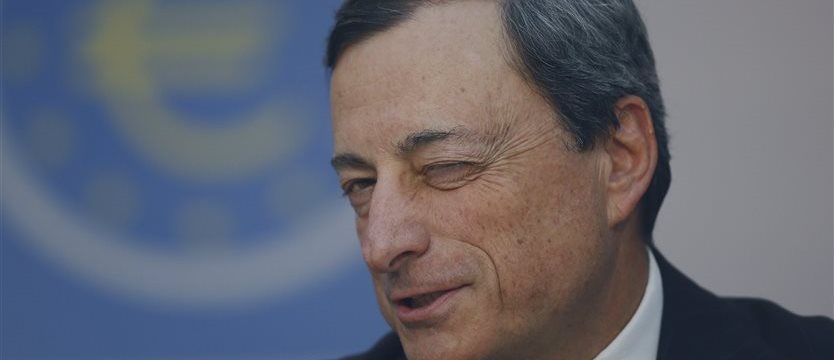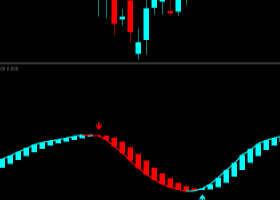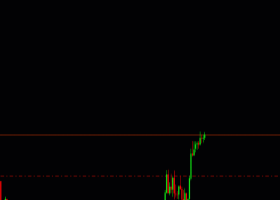Mario Draghi again ignites investors for action.
Three months after announcing historic stimulus for the euro area, the European Central Bank president signaled more is needed amid mounting deflation risks and tensions with Russia. While most economists predict officials will keep interest rates on hold today and refrain from large-scale quantitative easing, banks from Commerzbank AG to Barclays Plc say Draghi may commit to buying asset-backed securities.
The ECB appointed BlackRock Inc. (BLK) last week to help design an ABS program to add liquidity to the financial system and help revive lending. Even so, acting now could stir dissent among Governing Council members wary of assuming more risk before countries such as France and Italy implement economic reforms.
“If the ECB wants to send a signal at its upcoming meeting, it will probably generally announce an ABS program,” said Michael Schubert, an economist at Commerzbank in Frankfurt, who forecasts rates will stay on hold. “Our baseline scenario assumes that the ECB will announce QE in the next 12 months.”
Of 57 economists surveyed by Bloomberg News, 51 said the ECB will keep its key interest rate unchanged. Six said the rate will be cut by 10 basis points to 0.05 percent and the deposit rate lowered by the same amount to minus 0.2 percent. The bank will announce its decision at 1:45 p.m. in Frankfurt and Draghi will hold a press conference 45 minutes later.
Shrinking Market
The Bank of England is also predicted to leave its key interest rate unchanged, at a record-low 0.5 percent, at noon today in London. Sweden’s Riksbank is forecast to keep its repo rate unchanged at 0.25 percent.
A commitment to an ABS-purchase program would be a step up from last month, when Draghi said a final decision “will depend on the action of many other actors.” The central bank has called for regulatory changes to help revive a European securitization market that JPMorgan Chase & Co. says has contracted 42 percent since 2009.
JPMorgan said in a note yesterday that the ECB could buy as much as 40 billion euros ($53 billion) of ABS, or notes of varying risk and return that are backed by loans. Purchases would be limited to the new-issue market over a three-year period and focus on securities with the highest rating, the bank said, citing its own analysis.
German Opponents
As Bloomberg reported last week, New York-based BlackRock, the world’s biggest money manager, has been hired to provide advice on the design and implementation of a potential plan.
Opposition to asset buying is most likely to come from Germany, the region’s biggest economy. ECB Governing Council member Jens Weidmann, the president of the Bundesbank, said ABS purchases would be “problematic if central banks take on greater risk,” according to an interview with Frankfurter Allgemeine Zeitung in July.
German Finance Minister Wolfgang Schaeuble told Bloomberg TV last week that “monetary policy has come to the end of its instruments.” Deutsche Bank AG co-Chief Executive Officer Anshu Jain said yesterday that “we’re coming to the end of how much further central banks can stimulate the European economy.”
Stocks and bonds have risen and the euro has fallen on speculation Draghi’s flirtation with asset purchases has turned serious. Speaking at the Federal Reserve Bank of Kansas City’s annual symposium in Jackson Hole, Wyoming, on Aug. 22, he pointed to a drop in euro-area inflation expectations. That’s a contingency he has previously said would warrant QE.
Reform Commitment
“Markets seem to be preparing for quantitative easing following President Draghi’s speech,” said Antonio Garcia Pascual, chief euro-area economist at Barclays in London. “We still see the ECB inclined to wait until year-end.”
The debate among policy makers may focus on how more ECB stimulus would affect government action. Draghi said in Jackson Hole that monetary easing must be supported by fiscal “flexibility” and structural reforms.
He may be seeking German acceptance of looser policy in return for a stronger commitment to reforms. Draghi spoke to German Chancellor Angela Merkel after his speech. He met French President Francois Hollande in Paris this week to discuss the euro-area economy, and has sparred with Italian Prime Minister Matteo Renzi.
Signs of Rebound
“To neutralize Bundesbank resistance, the ECB would need firm political support from Berlin,” said Christian Schulz, senior economist at Berenberg Bank in London. “We expect that the ECB will now start the preparations for QE in earnest and begin buying bonds by the end of the year if Berlin signals support for QE after reform progress in Paris and Rome.”
Should policy makers choose not to commit to fresh action yet, they can point to tentative signs of economic improvement, in particular in countries that have pushed ahead with reforms. Purchasing managers’ indexes published yesterday showed manufacturing and services activity accelerating in Spain and Ireland, while contracting in France and Italy.
The 5 year, 5 year inflation forward Draghi cited at Jackson Hole has risen after falling below 2 percent for the first time since 2011. Core inflation in the euro area is at the strongest since April.
At the same time, headline inflation was 0.3 percent last month, the weakest since 2009 and a fraction of the ECB’s 2 percent goal. Staff economic forecasts today could back the case for action, with Governing Council member Ewald Nowotny signaling last month that the outlook will be revised lower.
In June, the central bank predicted average 2014 inflation of 0.7 percent, a level surpassed only once this year. A forecast of 1 percent economic growth has been undermined by stagnation last quarter and an expansion of 0.2 percent in the first three months.
“Lower inflation forecasts could push the ECB even further into the corner into which Draghi pushed it with his speech at Jackson Hole,” said Carsten Brzeski, chief economist at ING-DiBa AG in Frankfurt.



